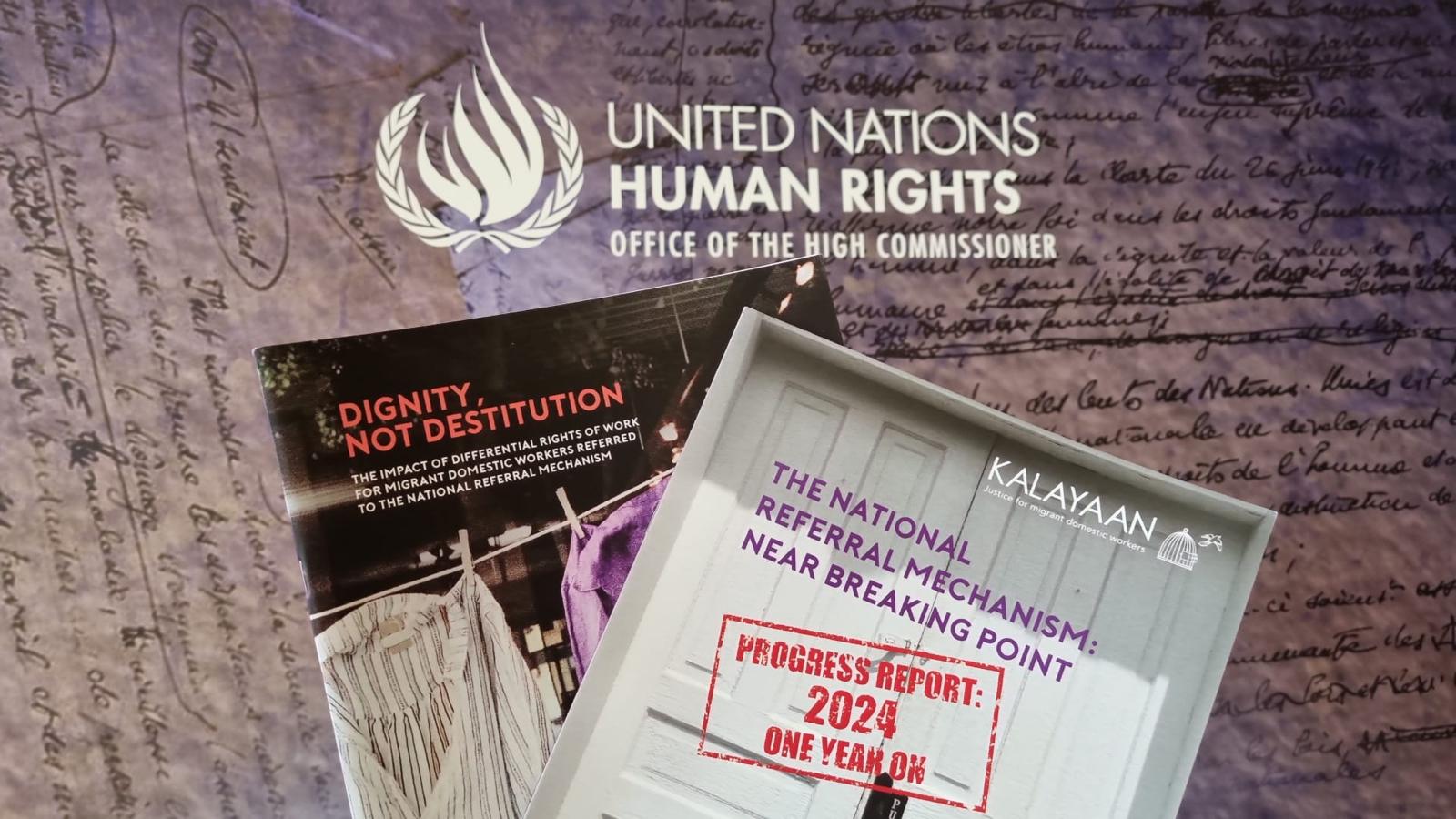March 19, 2024
Kalayaan speaks to the United Nations in Geneva

Our Policy Officer, Sophie Levack, attended and made a statement at the Human Rights Committee’s 140th Session in Geneva on 11 March 2024. She tells us about her experience.
It is 11:30am in Palais Wilson, and the corridor outside the OHCHR formal meeting room is packed. The Human Rights Committee is finishing up its meeting with the UK’s Equality and Human Rights Commission. NGOs presenting statements about human rights in Serbia, Guyana, Indonesia, and the UK are waiting for their turn to speak to the Committee Members. When we are finally let in, not everyone can find a seat. There are a lot of representatives here. There is a lot to be said.
NGO representatives are given two minutes to make their oral statement, no more. My colleagues and I have tried very hard to condense the key issues faced by domestic workers in the UK into a succinct statement. It was tricky but we did it. The Chair of the Committee introduces each representative and we each make our statement, conscious of the large timer in the corner counting down the seconds and trying to avoid looking up at the huge projection of each of us speaking.
I talk to the Committee about the ODW visa and how it prevents migrant domestic workers from accessing justice, I describe the crisis in the NRM: how it only supports those who have been trafficked and exploited, but not those with real employment grievances; how a lack of non-statutory first responders has created a bottleneck for those who could qualify for support, but cannot access it; and how once in the NRM, many migrants workers are denied the right to work, waiting years for a decision and sometimes taking risky, unregulated, and often exploitative jobs to make ends meet, all while in a system that was supposedly designed to protect them.
After the meeting, I meet with many NGO representatives who gave evidence of similar issues in their sector. We debrief over lunch and discuss issues in more depth. At 2pm, we are invited into an informal meeting with some of the Committee Members. They have reviewed our written submissions and have some follow-up questions. The issues are vast and many. Again, there are so many representatives here: in a smaller room, many of us are either standing or sitting on the floor. It seems the Committee has never had so many NGOs submit evidence for the UK before.
The day ends with another informal debrief. We hear what the Equality and Human Rights Commission submitted to the Committee earlier that day. We discuss other issues: access to justice, detention, health.
There is a lot of work to do, but there are so many passionate and driven people in the sector, it gives me hope that we might see change. Soon, hopefully.
Kalayaan looks forward to following up with the United Nations and our allies working in the sector and in other social justice issues as our work to restore rights and protect all workers in the UK continues.
Sophie’s speech delivered to the Human Rights Committee can be found here.


